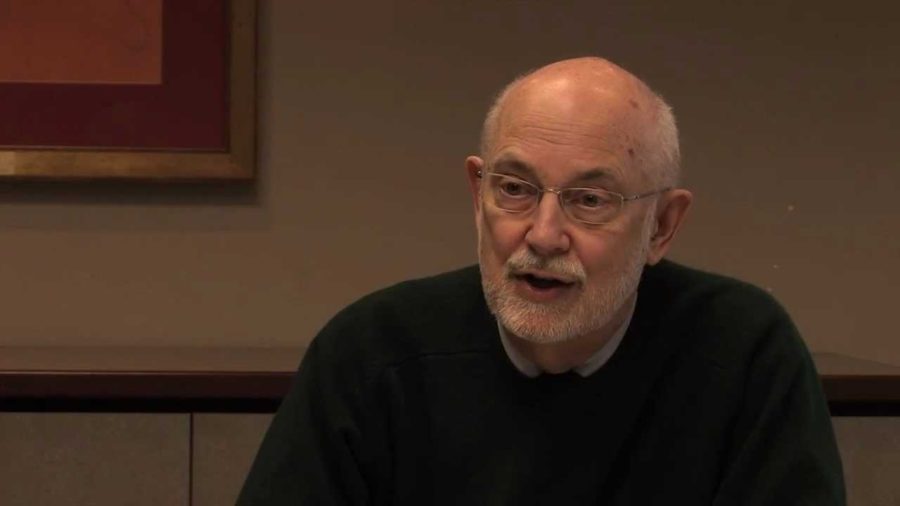Canadian constitutional adviser and law expert to lecture about democracy
John Whyte is a Canadian law expert.
April 10, 2018
When people picture a drafting of a constitution, they typically imagine a handful of men debating democratic principles and transcribing them.
According to John Whyte, a Canadian law expert, modern constitutional drafting is much different.
He will be lecturing about democracy in the 21st century in Howe Hall at 7 p.m. on April 11.
Whyte, along with many others, oversaw the drafting of the Canadian Charter of Rights in the 1980s. He described the process as a lengthy one that required the input from countless people.
“I remember I was standing outside a hotel the night the Charter of Rights was finally ratified,” Whyte said. “I heard a guy say to someone, ‘I wrote that,’ and when I turned to look at him I didn’t recognize him from any of the meetings where I advised the draftings. Now, he might’ve been lying, but it just proves that modern constitutions are written by lots of people.”
The Canadian Constitution was being redesigned around a myriad of instigating factors, including cultural desires for self dependence and limited federal power, and an administrative desire to constitutionalize human rights.
“These issues were really addressed as early as 1967,” Whyte said. “Federal power was frustrating the provinces … we needed to clarify some of their powers and transition some of that power to the provinces.”
The new constitution was finally approved in 1982. It’s most notable feature was the Charter of Rights and Freedoms, which laid out individual rights for Canadian citizens. It’s similar to the American Bill of Rights, although Whyte listed some differences between the documents.
“Our idea of what is harmful speech is broader than the U.S.,” Whyte said. “Hate speech persists in Canada in some forms, but the law doesn’t support it. I don’t think this leads to an erosion of democratic free speech, it’s just a difference in philosophy.”
Before the constitution was patriated in 1982 it was riddled with remnants of European colonization philosophies. This resulted in a system which oppressed minority groups like the indigenous, immigrants and certain religious groups.
“Bad things were happening in the 20th century,” Whyte said. “These were mostly because of hegemonic issues instead of free speech issues. The hegemonic evils had low tolerances for dissent, different ethnicities, inconvenient religions or anyone who was otherwise socially dissident.”
Canada’s old political structure had a federal government and a sovereign-style of British parliamentary system which had significant political power.
“The second one got changed,” Whyte said. “What developed was closer to being an American system, with a federalized government and constitutional rights that are protected by the courts.”
There were external factors pushing for revisions in the Canadian Constitution. Whyte said change also “was enacted to conform to the liberal democratic standards of the world.”
Whyte also worked with lawmakers in Nepal and the Republic of Georgia, offering his advice to people who wanted to advance democratic principles within their own governments.
“At the end of the day, I didn’t really accomplish anything,” Whyte said. “The views nations have about systemic change are so entrenched I couldn’t have much of an impact.”
He said that developing a multi-ethnic constitution is difficult. Even in the U.S. and Canada, which are mostly viewed as successes, there’s histories of succession and vehement disagreement.
“It’s not my view that people in Nepal or Georgia don’t want a stable and just society,” Whyte explained. “There’s a tendency to not want to write a constitution which would give one group a leg up over other groups.”







